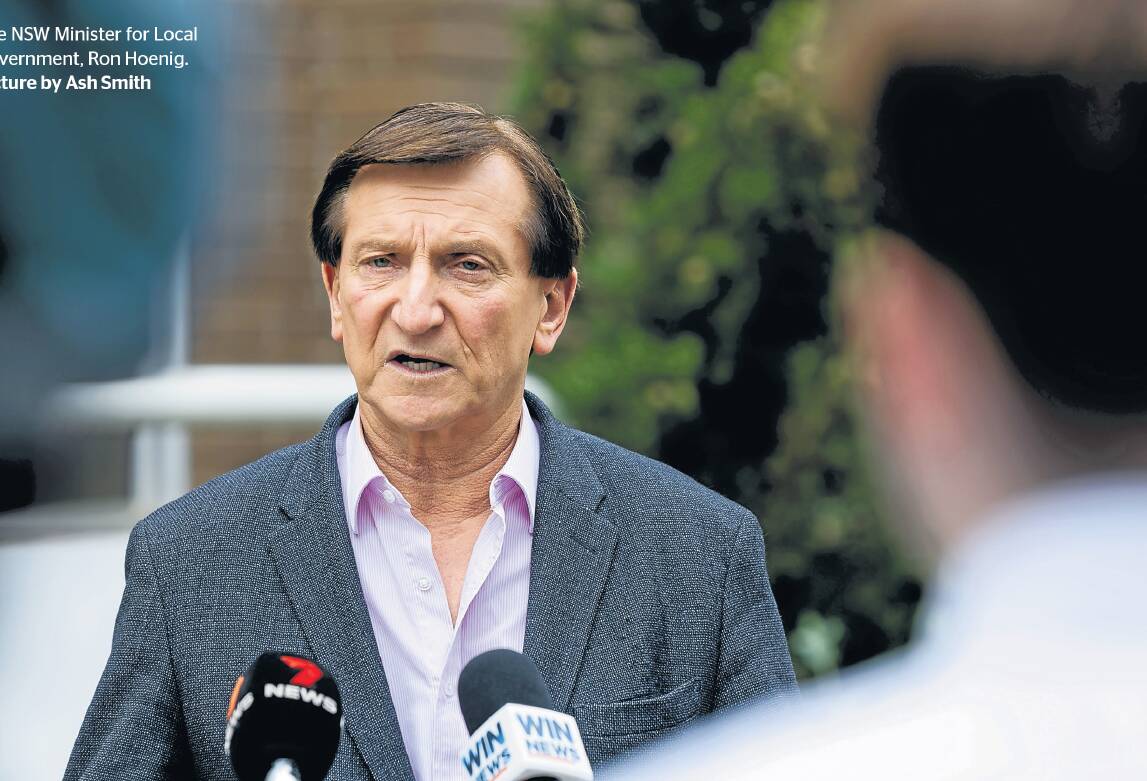
In the fictional British series Yes Minister, Jim Hacker's party is swept to power with a policy of open government involving greater transparency. Implementing this, Minister Hacker severely embarrasses his Prime Minister. Hacker's departmental secretary, Humphrey Appleby, declares: "The season for open government has closed."
Recently, in the Hunter, there have been two stark examples of lack of transparency at local government level.
In Lake Macquarie, the secrecy surrounding the sudden closure of the Myuna Bay recreation facility has pitched the NSW Minister for Local Government, Ron Hoenig, against a unanimous Lake Macquarie City Council, which wants the campsite reopened. The political heat in this debate has been raised because the initial decision-making processes that led to the sudden closure of the campsite in 2019 are still kept secret by the NSW government.
Meanwhile, at the City of Newcastle (CoN), the inquiry into CEO Jeremy Bath has produced a final report that found there was "insufficient evidence to substantiate allegations that CEO Jeremy Bath was the author of a series of letters to the Newcastle Herald by his friend Scott Neylon attacking the council's critics".
However, the process has been kept secret from start to finish, and the inquiry was outsourced to a private company, Pinnacle Integrity. The terms of reference of this inquiry, its scope, and powers to gather evidence have never been revealed, and the report's methodology and findings have also been kept secret.
When Yes Minister's Jim Hacker queried the terms of reference of a British government inquiry, Sir Humphrey replied: "If you lay down the railway tracks in a certain direction, that is the way the train will go".
The letter-writing saga caught the public's attention after a series of articles in the Newcastle Herald. The newspaper has all the crucial Neylon letters to the editor for more than 13 years on file, and has carried out its internal investigation. They "smelt a rat", particularly after it was revealed that Neylon, the letter writer and close friend of the CEO, had been working in Japan since 1998.
However, during the CoN inquiry into the CEO's alleged links to this campaign, the Herald was not asked to supply copies of the Neylon letters, nor were any of the reporters who wrote the articles on the matter interviewed by Pinnacle Integrity.
Bob Cook, the Newcastle Maritime Museum president, whom the outsourced company interviewed, has said had no faith in the process due to its severe limitations. This inquiry seems to have been very narrow in scope, with no power to compel witnesses to answer questions, produce evidence, or even for people to participate.
In 2016, the NSW Ombudsman reviewed government bodies' use of private companies for outsourced inquiries and found the process wanting.
"The quality of these external investigations can be very poor," the ombudsman's report concluded.
Indeed, the reaction to the finding of the Pinnacle Integrity report shows a profound lack of faith in the process. This ranged from the adverse reaction by local MPs and councillors to the writers of newspaper articles and letters to the editor, who have responded to the findings with scepticism.
Commentary on social media has also been damning of the process, particularly since Wallsend MP Sonia Hornery raised the Neylon letter-writing saga under parliamentary privilege.
Seven years since the NSW Ombudsman's damning report into this type of code of conduct inquiry, the NSW Minister for Local Government, Ron Hoenig, has called this type of inquiry a "broken process" and has vowed to fix it before next year's local government elections.
This may restore an increasingly cynical public's faith in local governments' decision-making process, particularly in Newcastle, if the new system can establish the truth in a comprehensive, just, and transparent way.







